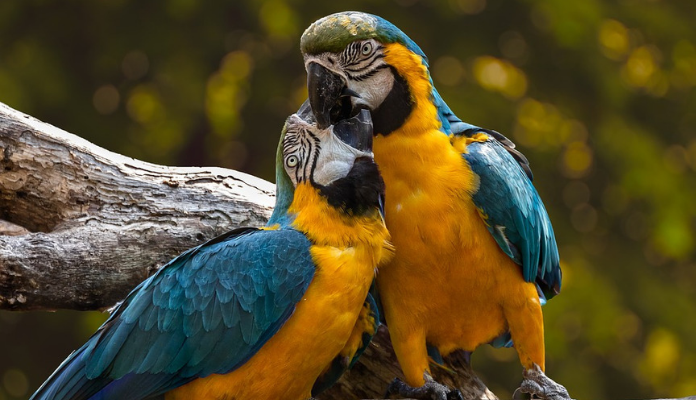Caring For Exotic Birds
By definition, any bird that is not of Indian origin is an exotic bird. Parakeets, Cockatiels, Budgerigars, Macaws, Canary, Zebra Finch, Rosella, and Cockatoo are some of the exotic birds seen in India. Bird enthusiasts all over the world have been in awe of the beauty and elegance of exotic birds. For years they have admired them for their bright plumage, intelligence, and affable personalities.
In modem times, exotic birds have found their way into the hearts and homes of hundreds of bird lovers across the country. Budgerigars or Parakeets are some of the most popular birds in the country. Bird keepers have become aware of the birds and their lifestyle requirements. If you are a proud parent to an exotic bird, here’s how you can take care of them in the best possible way.
Food And Diet Supplements
One of the best ways to care for exotic birds is to provide them with food that is similar to their nation of origin. The food, in general, should be a good mixture of seeds supplemented with sprouted seeds, fruits, fresh green foods, pellets and grains based on the size and the strength of the bird’s bill. A lot of companies have developed food items for exotic birds. Dietary supplements are required to take care of the overall health of the birds and provide them with stronger musculoskeletal structures and assist with digestion.
Shelter And Surroundings
Canaries, Budgerigars, Zebra Finches, Parakeets, and other exotic birds are sensitive birds and need special care and comfort especially in harsh and extreme climates found in India.
Ideally, if you have exotic birds at home. it is imperative that you provide them with shelter in a cool and calm place The temperature in the place of their shelter should not exceed more than 28 degrees Celsius. Exotic birds are prone to developing skin problems and digestive issues if they are not provided with a dean cage or aviary.
Daily cleaning of the food and water dishes is a must, as it alleviates any problem due to stale food or water. The aviary or cage should be cleaned weekly (however, if you have a small bird, cleaning the aviary or cage on alternate days is advised) while monthly cleaning with a disinfectant is suggested for all cages and birds to keep them clean and infection free.
Another important aspect of caring for exotic birds is the provision of a cage or an aviary. The cage/aviary should be big enough for the birds to be able to move freely inside ¡t. The larger the bird, the bigger the cage should be. Many people set up aviaries inside the house, however, if you are creating an outdoor aviary, make sure that the aviary is in a place where there is ample amount of shade and plenty of branches/perches. You will have to make sure that the branches and the plants are not poisonous and do not have thorns or spines.
Providing ample amount of space to the birds to fly in the aviary is a must. There are a number of toys that have been specially designed to keep the birds mentally and physically engaged. Most of the toys are made of soft wood and rope and are attractive in nature. Remember, birds thrive on love and care and do well in a family where they interact with them
